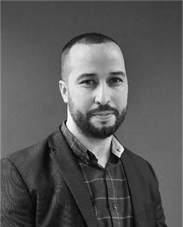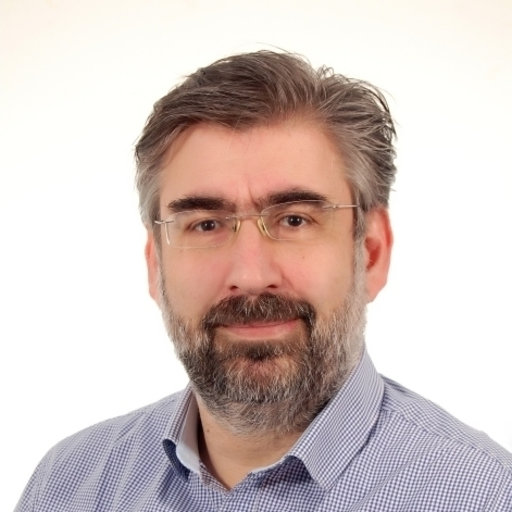
|
|
|
Speakers

Yazami RachidIs a Moroccan scientist, engineer, and inventor. He is best known for his critical role in the development of the graphite anode (negative pole) for lithium-ion batteries and his research on fluoride ion batteries. While holding a research director position with the CNRS in France, Yazami served as a visiting associate at the California Institute of Technology between 2000 and 2010. In 2010, Yazami was appointed a Nanyang Visiting Professor. He was promoted in 2012 to the Cheng Tsang Man Chair Professor in Energy at the School of Materials Science and Engineering of the Nanyang Technological University (NTU) in Singapore. Yazami is the co-author involved in over 250 published papers and the co-inventor of about 160 patents related to lithium primary and rechargeable batteries and on new battery chemistry based on fluoride ion. In 2014, Rachid Yazami, John Goodenough, Yoshio Nishi, and Akira Yoshino were awarded the Draper Prize by The National Academy of Engineering for pioneering and leading the groundwork for today’s lithium-ion battery. The prize. That same year, Yazami was a finalist of the Global Energy Award (Russia, 2014). |

Kohji NakamuraProfessor at Mie University in Japan and a Fellow of the American Physical Society. His research interests include development of ab-initio computational method, full-potential linearized augmented plane wave method, for studying the magnetism phenomena in complex material systems including their use for investigations on non-collinear magnetism, and spin-orbital induced- and external electric field-induced magnetic phenomena of films and at surfaces/interfaces. |

Konstantinos TERMENTZIDISHe is a CNRS Research Director at the Centre for Energy and Thermal Sciences of Lyon (CETHIL), and member of the "Microscale and Nanoscale Heat Transfer" (MiNT) group at CETHIL. Since 2018 he is co-responsible of the nano-micro-thermal thematic group of the SFT (Société Française de Thermique) and since 2020 director of the GDR-NAME (Nanomaterials for Energy Applications a French National Scientific Network). |

Abdelfattah Mahmoudis the Battery Group Leader at GreenMat Labory of the University of Liège (Belgium). His research focuses on i) the development of the battery materials for Alkali-ion batteries, ii) all solid-state batteries and iii) recycling of spent Li-ion batteries and PV panels. He is in charge of the analytical platforms of electrochemistry and Mössbauer Spectroscopy. Before joining the University of Liège, Abdelfattah was a postdoctoral researcher for two years at Forschungszentrum Jülich, JCNS-2 (Germany). His research there focused on the characterization of electrochemically active materials using nuclear resonance and neutron scattering techniques. He graduated with a Ph.D. in Materials Science in December 2012 from Cadi Ayyad University in Marrakech (Morocco), where his dissertation focused on the development of three electrode materials for high-energy-density lithium-ion batteries. He has been a visiting researcher in many research centers, laboratories and Universities: Oak Ridge National Lab (USA, 2018), Montpellier University (France, 2011) and Materials Science Institute of Madrid (Spain 2009, 2010 and 2012). He has authored and co-authored more than 105 peer-reviewed papers, holds 2 patents, and has contributed to over 120 conference papers, invited talks, and extended abstracts. |
Abdelwahed CHARIhas extensive industrial experience, spanning more than 15 years, in large-scale energy production and water treatment at OCP Group. He has held several positions of responsibility within the OCP Group, including Production Team Leader, Assistant Workshop Chief, Production Workshop Manager (Water Treatment and Sea Water Pumping Units), Facilitator and Coordinator of the "Movement," and Animator at African Academy of Industrial Training (AAIT) in EL Jorf and Safi. Since 2018, Dr. Abdelwahed has served as an OCP professor, teaching modules related to Power Generation Technology and Water Treatment Technology at OCP Group. He earned his PhD in Materials Sciences from the University Hassan II in collaboration with Mohammed VI Polytechnic University (UM6P). His PhD thesis focuses on the Synthesis, Characterization, and Applications (Water and Energy) of new phosphate-based materials. Pr. Abdelwahed has participated in several national and international conferences, once as an industrial keynote speaker (Morocco) and multiple times as a speaker and invited speaker (Morocco, Italy, France, Germany, and Spain). He has been awarded the Best Poster Prize twice, from the Second Moroccan Spring School on Advanced Materials in June 2019 at 'MAScIR' Rabat, and the ENSUS Annual Scientific Day 2021 on December 13th at 'UM6P/MSN' Benguerir. Since 2022, Dr. CHARI has been an Assistant Professor at the Materials Science, Energy, and Nanoengineering (MSN) department at Mohammed VI Polytechnic University. His work focuses on developing cathode and anode materials for both Na- and Li-ion Batteries, synthesis and characterization of materials, and electrochemical evaluation of synthesized materials with due correlation. His current research focuses on developing a high-energy-density electrode materials system for efficient energy storage technology and low-cost batteries based on the abundant elements in Earth’s Crust. |

Joseph KioseoglouProfessor at the School of Physics, Department of Condensed Matter and Materials Physics of the Aristotle University of Thessaloniki. Deputy Head of School of Physics, Aristotle University of Thessaloniki since Sept. 2022; Director of Theoretical and Computational Solid State Physics laboratory since Oct. 2020; Deputy President of Board of Directors at Urban Public Transport Organisation of Thessaloniki Apr. 2020-Aug. 2022. He received his B.Sc. in Physics in 1993, his M.Sc. in Materials Physics in 2000 and his Ph.D. in 2004 from the Aristotle University of Thessaloniki. He was elected Assistant Professor at the Physics Department in 2009, Associate Professor in 2016 and Full Professor in 2021. |
Joseph BassamaHe is an associate Professor of process engineering in the Department of Food Technology at the Gaston Berger university in Saint-Louis (Sénégal). He began his career as assistant professor in process engineering at the Institut Agro of Montpellier in France. His research focuses on the modeling of thermal processes and their impact on quality of food products. Since 2019, he began to focus on the field of biomass and energy. He is the principal investigator of the Biostar project in his university, a project that intends to develop equipment using thermochemical conversion of biomass to reduce the dependence to fossil energy for local processors in rural areas. He is a founding member of the Biomass Energy laboratory at Gaston Berger University. He obtained his engineering degree in food in industry from the Hassan 2 agronomic and veterinary institute in Morocco, his M.Sc. in process engineering from AgroParistech in 2007 and a PhD from the University of Montpellier in 2011. |
Amadou SEIDOU MAIGAProfessor at University Gaston Berger of Saint-Louis (SENEGAL). He is graduated from Rennes 1 University (FRANCE) with a Master degree and a PhD in microelectronics. He has 30 years of experience in the field of Applied Sciences and technology being teacher and researcher, first in the Faculty of Sciences (University Abdou Moumouni of Niamey, NIGER) and since 2004, in the faculty of Applied Sciences and technology of university Gaston Berger (SENEGAL). His research activities have since focused on characterizing, modeling and simulating of electronic components and devices behaviour and photovoltaic cells and systems. In recent years he has been conducting various studies on silicon solar cells in order to contribute to the improvement of their performance which depend heavily, among other things, on the phenomenological parameters on which electrical parameters depend. Is also working on the influence of climate parameters on the behaviour of solar panels. The main objective is to understand the behaviour of photovoltaic panels in Sahelian environments and to contribute to the definition of appropriate qualification standards. |
Djicknoum DIOUFProfessor of Physics at Applied Sciences and Technology faculty, Université Gaston Berger (UGB), Senegal. Basic academic training in fundamental physics at the Aix-Marseille III University (France); PhD in simulation of amorphous/crystalline silicon heterojunction solar cells at the Paris-Sud University in 2010. He joined UGB as associate professor in Physic in 2013. Currently, Head of the applied physic Department, he coordinated of the Master Sc. program Renewable Energies from 2015 to 2017. His research activities focus on the development of renewable energies (solar energy and bio-energies). He is interested in hybrid energy systems combining available renewable energy sources to provide reliable energy services to local populations. He is head of the Renewable Energies Team of the LEITER laboratory. |
Arvind Kumar ChaudharyHe is a Data Scientist at Cognizant Technology Solutions in the United States. He specializes in Artificial Intelligence and Machine Learning, with a focus on Cybersecurity and Healthcare applications. His research includes electronic health record management, AI-based IoT systems to support healthcare, and predictive models for preventing diabetes. He has also authored a book on technological innovations in cybersecurity. With over two decades of experience in the Information Technology industry, he has contributed to multiple business domains including Healthcare, Finance, and Retail. He has worked with major global IT companies such as Tata Consultancy Services and collaborated with leading clients including Merck and Organon Pharmaceuticals. His research and professional experience are of significant importance to the IT industry, driving innovation and advancing secure, intelligent solutions. |

